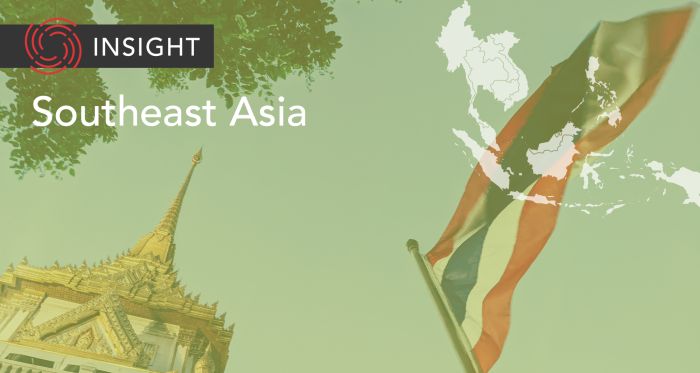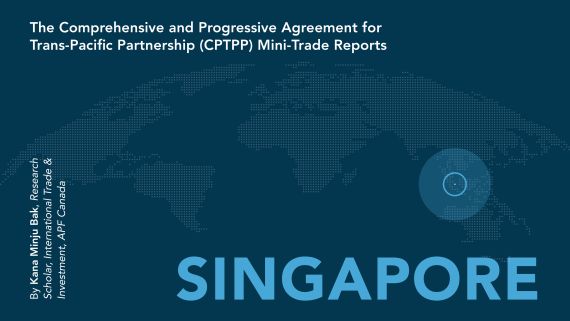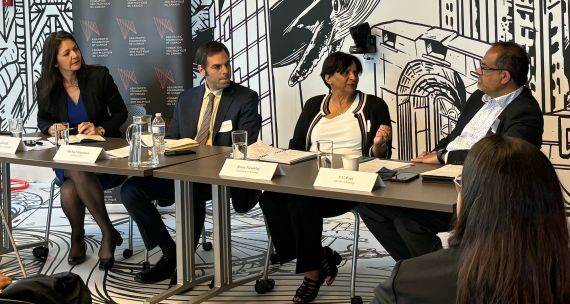The Takeaway
On September 5, Thailand swore in a new prime minister, 61-year-old real estate magnate Srettha Thavisin, ending months of political uncertainty after the May 14 election failed to produce a leadership candidate acceptable to the country’s entrenched conservative establishment. In his first address to the nation, Srettha delivered on his party’s populist campaign pledges of cash handouts and fuel subsidies. But two uncertainties loom over his early tenure: whether such initiatives will be enough to revive a sluggish economy, and whether they will pacify citizens angry about the political trade-offs Srettha and his Pheu Thai Party made to secure the leadership position.
In Brief
- In his September 11 policy speech, Srettha highlighted several schemes he hopes will jolt the economy. One is a C$385 (10,000 Thai baht) ‘digital wallet’ payment to all Thais over the age of 16. The funds will be distributed by February 2024, and can be used to purchase goods and services within a six-month period.
- Two other initiatives include a debt moratorium for farmers and small-business owners, and subsidies for gas, electricity, and cooking oil. But, as some in the opposition have pointed out, Srettha’s statement was light on details, such as solutions for the economy’s longer-term structural problems. Thai exports have yet to rebound from the hit they took during the COVID-19 pandemic.
- Srettha begins his tenure in a somewhat awkward political position. Another pro-democracy party, the upstart Move Forward Party (MFP), edged out Pheu Thai in the May elections, performing well in areas of the northeast that had been an important part of Pheu Thai’s voter base. A major reason for the MFP’s high level of support was its commitment to curtail the military’s role in Thai politics and reform the controversial lèse-majesté, or “royal insult,” law.
- Pro-military conservatives leveraged their structural advantage in the unelected Thai senate to block MFP’s leader, Pita Limjaroenrat, from becoming prime minister. Pheu Thai initially formed an alliance with MFP but abandoned Pita’s party to form a new 11-party coalition including conservative parties — a move seen as necessary to secure the senate’s support for Srettha.
Implications
A Pheu Thai-led government could help to attract foreign investment. Thailand is seen as having underperformed in attracting investment from Western countries compared to other regional economies like India and Vietnam. One reason for investor hesitancy is the political instability from Thailand’s frequent military coups. For example, the conservative government voted out in May originally took power in a military coup in 2014, ousting the popularly elected Pheu Thai government of former prime minister Yingluck Shinawatra. In 2006, the military overthrew and sent into exile the elected government led by Yingluck’s brother, Thaksin Shinawatra.
Pheu Thai’s pro-democracy credentials should help to assuage Western investors’ concerns. But the senate, whose members are appointed by the military (and many of whom are former military officers) showed that it is willing to disregard the will of the voters when it blocked Pita from becoming prime minister.
What’s Next
- A potential ‘grace period’ for the PM
Srettha’s package of populist economic policies could serve as a peace offering to those who are frustrated that Pheu Thai has aligned itself with its erstwhile political enemy. In his speech, Srettha offered up amending the country’s constitution to make it more democratic and respectful of citizen participation and the rule of law. But Pheu Thai never embraced reforms of lèse-majesté and has distanced itself from the issue further, especially after Thaksin received a royal pardon for abuse of power and conflicts of interest — charges brought by the military government that deposed him. If popular discontent with Pheu Thai’s about-face escalates, it could coalesce into protests like the ones that swept the country in 2020.
- A return of robust Chinese demand?
China is Thailand’s second-largest trading partner behind the U.S. But Bangkok’s hopes for a bump in exports to China may be tempered by the gloomy economic news coming out of Beijing. Srettha’s years of experience in the private sector may help him chart a path out of Thailand’s current economic slump, as long as he can keep a lid on political tension.
• Produced by: Erin Williams (Senior Program Manager, Asia Competencies).




